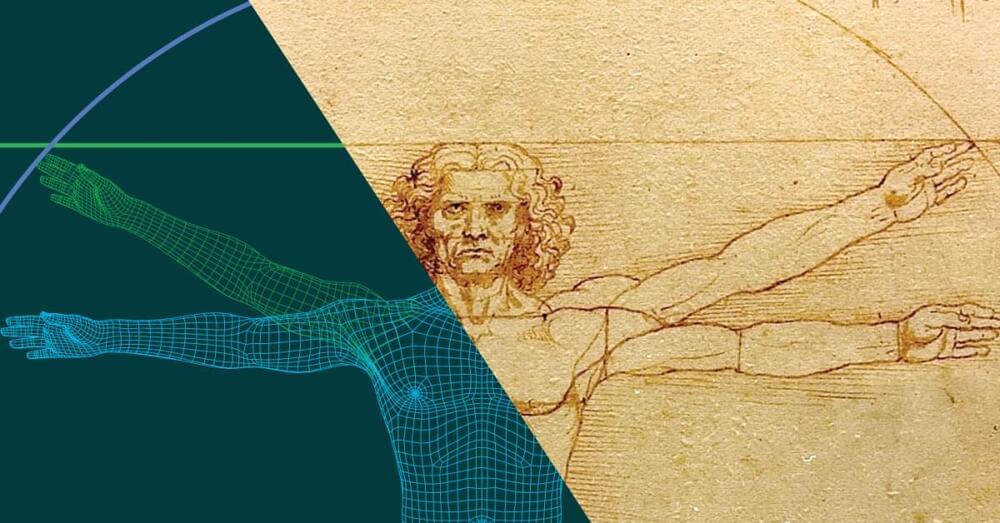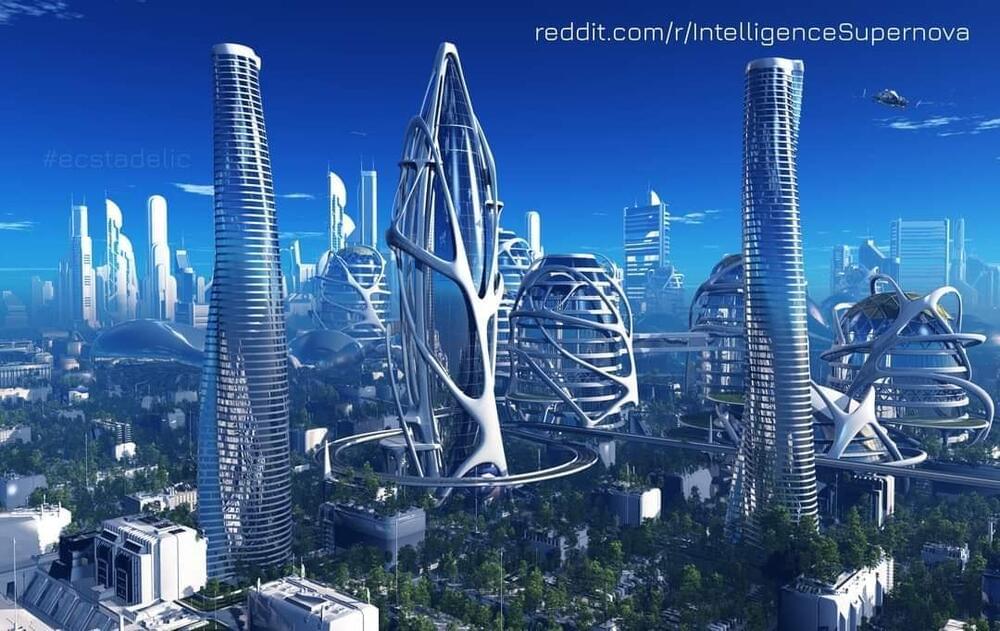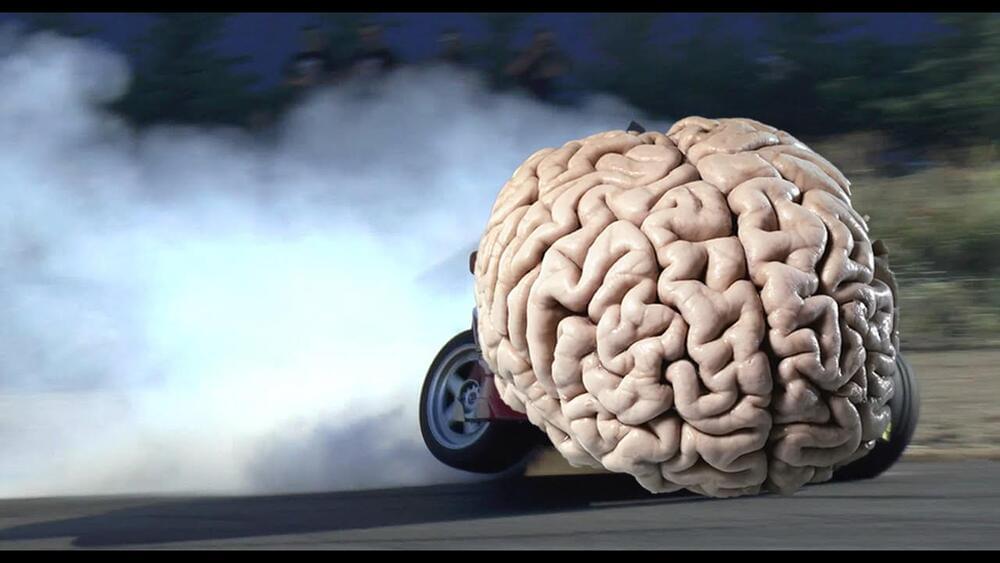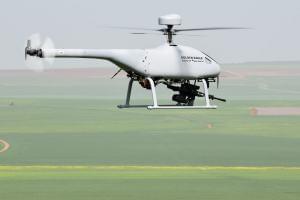Automation will create new types of jobs.
Delivery robots seem to be everywhere these days. Keeping them out of trouble are human minders who might need to hop on a bike to finish the delivery themselves.
Automation will create new types of jobs.
Delivery robots seem to be everywhere these days. Keeping them out of trouble are human minders who might need to hop on a bike to finish the delivery themselves.

Developments in artificial intelligence and human enhancement technologies have the potential to remake American society in the coming decades. A new Pew Research Center survey finds that Americans see promise in the ways these technologies could improve daily life and human abilities. Yet public views are also defined by the context of how these technologies would be used, what constraints would be in place and who would stand to benefit – or lose – if these advances become widespread.
Fundamentally, caution runs through public views of artificial intelligence (AI) and human enhancement applications, often centered around concerns about autonomy, unintended consequences and the amount of change these developments might mean for humans and society. People think economic disparities might worsen as some advances emerge and that technologies, like facial recognition software, could lead to more surveillance of Black or Hispanic Americans.
This survey looks at a broad arc of scientific and technological developments – some in use now, some still emerging. It concentrates on public views about six developments that are widely discussed among futurists, ethicists and policy advocates. Three are part of the burgeoning array of AI applications: the use of facial recognition technology by police, the use of algorithms by social media companies to find false information on their sites and the development of driverless passenger vehicles.

Summary: AI technology helped map out diverse and subjective psychedelic experiences to different brain regions.
Source: The Conversation.
For the past several decades, psychedelics have been widely stigmatized as dangerous illegal drugs. But a recent surge of academic research into their use to treat psychiatric conditions is spurring a recent shift in public opinion.

R/IntelligenceSupernova — dedicated to techno-optimists, singularitarians, transhumanist thinkers, cosmists, futurists, AI researchers, cyberneticists, crypto enthusiasts, VR creators, artists, philosophers of mind. Accelerating now towards the Cybernetic Singularity with unprecedented advances in AI & Cybernetics, VR, Biotechnology, Nanotechnology, Bionics, Genetic Engineering, Optogenetics, Neuroengineering, Robotics, and other IT fields.
Join now: https://www.reddit.com/r/IntelligenceSupernova.
#Subreddit #IntelligenceSupernova
Scientists have developed a new artificial intelligence (AI) technology that models and maps the natural environment in intricate detail. Check out how this could help scientists in their work.


What can heal can also be used to destroy?
MegaSyn is built to generate drug candidates with the lowest toxicity for patients. That got Urbina thinking. He retrained the model using data to drive the software toward generating lethal compounds, like nerve gas, and flipped the code so that it ranked its output from high-to-low toxicity. In effect, the software was told to come up with the most deadly stuff possible.
He ran the model and left it overnight to create new molecules.
It was quite impressive and scary at the same time, because in our list of the top 100, we were able to find some molecules that are VX analogues

Steadicopter, a leader in the Rotary Unmanned Aerial Systems (RUAS) industry, and Smart Shooter, a world-class designer, developer, and manufacturer of innovative fire control systems that significantly increase the accuracy and lethality of small arms, have unveiled the Golden Eagle — the first-ever unmanned helicopter with precise hit capabilities. The two companies will present the solution at the ISDEF exhibition in Tel Aviv.
Based on the combat-proven Black Eagle 50E platform, the Golden Eagle incorporates AI-based technology and Smart Shooter’s SMASH Dragon system. The AI-based technology enables superior situational awareness and autonomous multi-target classification and tracking. The SMASH Dragon, a remotely-operated robotic weaponry payload, locks on the target, tracks it and ensures precise target hit. SMASH Dragon integrates a unique stabilization concept with proprietary target acquisition, tracking algorithms and sophisticated computer vision capabilities that allow accurate hitting of static and moving targets while mounted onto the Golden Eagle.
“Using artificial intelligence, the new system provides a field combat solution for the modern battlefield. Forces on the ground can now send a helicopter for autonomous intelligence gathering into the relevant area and, having identified and classified the targets, send in another helicopter with precise attack capabilities.”
Dr. Abraham Mazor, VP Marketing & Business Development at Smart Shooter: “Using AI, computer vision and advanced algorithms, Smart Shooter’s SMASH technology enhances every mission effectiveness through the ability to accurately engage and hit ground, aerial, and naval, either static or moving targets during both day and night operations. Our SMASH Dragon lightweight robotic weaponry payload can be deployed on different unmanned aerial platforms, and we are honored to collaborate with Steadicopter and jointly offer the Golden Eagle RUAS.”
Rather than fret about how many jobs future technologies will destroy, we should focus on how to shape them so that they complement the workforce of tomorrow.